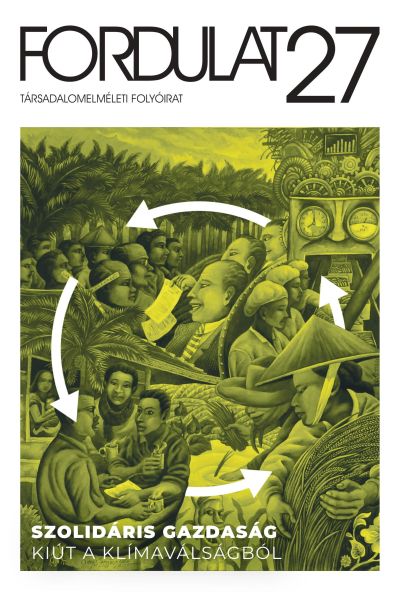„Ha frankó, akkor úgy megy, mint a zsebóra” Szövetkezetiség, csettegők és technológiai önrendelkezés
“When it’s cool, it works like a swiss watch.” Cooperatives, csettegő and technological autonomy in the Hungarian countryside
Author(s): Márton Szarvas, Soma Ábrahám KissSubject(s): Politics / Political Sciences, History, Anthropology, Social Sciences, Economy, Customs / Folklore, Civil Society, Sociology, Economic history, Social history, Cultural Anthropology / Ethnology, Culture and social structure , Family and social welfare, Rural and urban sociology, Sociology of Culture, Radical sociology , Environmental interactions, Post-War period (1950 - 1989), Transformation Period (1990 - 2010), Globalization
Published by: Fordulat
Keywords: commons;technology;technological soveregnity;cooperatives;agrar politics;agrarian and industrial complex;agrarian and rural policy;agrarian cooperatives,
Summary/Abstract: The article shows the importance of technological autonomy for the reproduction of social solidarity economy networks through international and Hungarian examples. It argues that technological innovation is necessary for such projects. Through an example of a handmade agricultural vehicle the article demonstrates the way people tend to organize the necessary technological tools for their social reproduction. The case study is situated in a region called the “Golden Triangle”. Here specialized cooperatives were established where the local lands could be cultivated only through technologically or labor-intensive ways, while the goods produced, like grape, sour-cherry or elderberry, were profitable enough on a small scale. Parallel to the development of specialist cooperatives, locksmiths started to put together vehicles, which were capable of maneuvering in tight rows and deep sand. These were adapted from engines and chassis of Soviet military vehicles. According to our argument the liberalization of the production of agricultural vehicles in the region stimulated employment through the creation of entrepreneurs, while at the same time it enabled the necessary technological innovation required to maintain productivity.
Journal: Fordulat (2008-tól Új Folyam)
- Issue Year: 2020
- Issue No: 27
- Page Range: 265-279
- Page Count: 15
- Language: Hungarian

